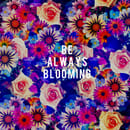“Who am I?”
This phrase, this preoccupation with an individual’s perception of his or her identity, permeates every corner of society. Just about everything—from college applications to census surveys to a litany of literature, film, and art—concerns itself with identity. The search for it, the changes in it, and the legitimacy of identity is a highly important topic in current conversation.
Labels provide a way around the vast, abstract, and ephemeral nature of identity. Some are given to us—like physical traits and ethnic backgrounds—while others are labels that we choose for ourselves. They give names to passions, traits, alliances, preferences, and other defining characteristics that create an individual’s identity.
We are Hufflepuffs, heterosexuals, lacrosse players, Democrats, baseball fans, African Americans, right-handed, Trekkies, feminists, former addicts, tone-deaf, millennials, Scorpios…the list could continue ad infinitum. These words and phrases make it substantially easier to solidify what we have, or don’t have, in common with the people around us.
This is one of the great benefits of labels—not only do they provide us with a way to define ourselves, but they give us a way to connect with other people or to find a group where we can belong. Alcoholics Anonymous, anxiety discussion groups, and the Hell’s Angels all provide outlets where people can express their concerns, passions, and feelings with a group of people who share that label.
Social movements—from Women’s Suffrage to Civil Rights to Pan-Indianism—have roots in specific identities that people feel deserve recognition. Not only is identifying as a feminist, African American, or Native American valuable for the individual’s own concept of self, but it is also valuable for creating a wider acceptance and appreciation for those labels and identities.
But there is a danger to labels. As helpful as it is for you to form your identity through the use of labels, you can also run the risk of them defining you. You are a culmination of infinite aspirations, dreams, feelings, fears, joys, and passions. Labels specify those things, but they can also solidify identities into overly simplistic lists of terms. Just because you identify as a Runner doesn’t mean that it’s the only thing that you do. Sometimes, though, labels can convince you to think that way. What happens if you contract an injury and have to stop running? Labels can thus feel limiting at times.
These limits are particularly dangerous when it comes to dichotomous labels. The either/or conundrum can produce a kind of rivalry, a negative contradiction that pits aspects of our identities against one another. Politics, in particular, suffer from this dilemma: you’re either a Democrat or Republican, Pro-Choice or Pro-Life, for or against the death penalty. There are exceptions to these alternatives—you could be Independent or Undecided—but our society perceives these labels as two-sided, telling us, “Pick one.”
But they aren’t always political. You either like Snape or you hate him. You’re an early bird or a night owl. You’re an eat-dessert-first kind of person or a proponent of saving the best for last. And they don’t always divide entire people—we are a mess of contradictions. Our labels don’t always match up. I may really love to wake up early in the morning, but that doesn’t mean I don’t also love midnight trips to Krispy Kreme to taste the first doughnuts of the next day. People who are lactose-intolerant can still love macaroni and cheese. These contradictions seem trivial, but there are parallel struggles of greater importance happening inside our heads every day. Relying too heavily on labels can make those contradictions harder to escape.
In particular, as young people we are wrestling with a world that is placing particular importance on labels and the groups they construct while simultaneously trying to understand who we are as individuals. They are helpful insofar as they provide us with an outlet to explore different parts of ourselves—what we like, what we struggle with, what we want to be—but they can also endanger our flexibility in defining ourselves.
Our list of characteristics, preferences, and roles can help us understand who we are, but I don’t think they should become a fixed definition, a sixteen-item list that claims to capture our identities. We continue to shape and be shaped by the people and the world around us, and those words and phrases will never be able to fully summarize the human experience.
Image Credit: Feature, 1, 2, 3


